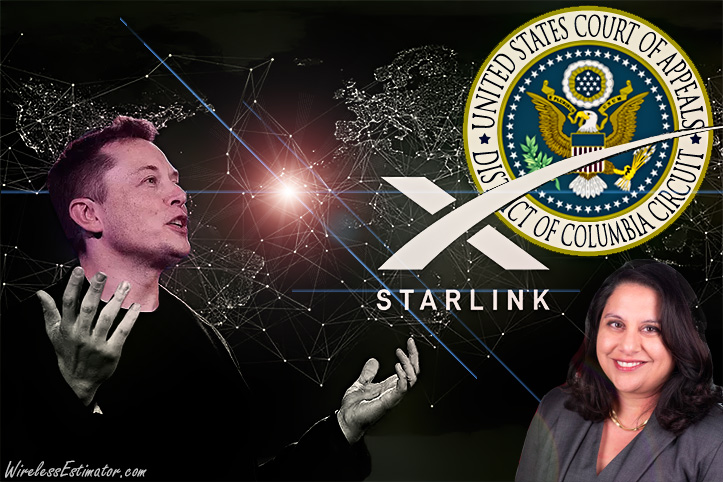
U.S. Circuit Judge Neomi Rao wrote the panel’s unanimous decision that found that the FCC’s approval of Elon Musk’s SpaceX license wasn’t arbitrary and capricious
The D.C. Circuit panel upheld the Federal Communications Commission’s (FCC) decision to license a new SpaceX satellite system, rejecting challenges from Dish Network and the International Dark-Sky Association.
The decision released today, made by U.S. Circuit Judges Neomi Rao, Michelle Childs, and Senior U.S. Circuit Judge Douglas Ginsburg, found that the FCC had adequately considered potential risks and conducted the necessary environmental review.
SpaceX applied for a license to operate 29,988 low-altitude non-geostationary orbit satellites as part of its second-generation Starlink system to enhance internet service globally.
The FCC conditionally approved a license for 7,500 satellites, citing the public interest in improving broadband access in underserved regions.
The International Telecommunications Union (ITU), which ensures satellite compliance with power flux-density limits, requires applicants to undergo a certification process.
The FCC approved SpaceX’s license while awaiting the ITU’s determination, with the caveat that SpaceX would need to adjust its operations if it failed to meet the ITU’s standards.
The Dark-Sky Association, concerned about light pollution affecting astronomical observations, challenged the licensing. However, Judge Rao, writing the panel’s unanimous opinion, found that while the organization had standing to sue, it failed to prove that the FCC’s decision was arbitrary and capricious.
The FCC’s decision fell within a “categorical exclusion,” negating the need for an environmental assessment bolstered by European Space Agency studies indicating no significant environmental impact.
Dish Network argued that the FCC ignored evidence that Starlink would exceed ITU limits, deferred the ITU’s favorable finding requirement, and withheld SpaceX’s data from public release. Judge Rao dismissed these claims, stating that Dish failed to provide conclusive evidence that Starlink would exceed limits.
She upheld the FCC’s interim waiver as reasonable to avoid delays in providing internet service to unserved regions, referencing a previous D.C. Circuit decision supporting SpaceX’s first-generation satellite system.
Regarding data disclosure, Rao ruled that the FCC was not required to release SpaceX’s data since it was used for ITU’s analysis and not independently evaluated by the FCC.
Additionally, the FCC did not delegate decision-making authority to the ITU but merely sought technical advice, maintaining the final decision-making power.

















